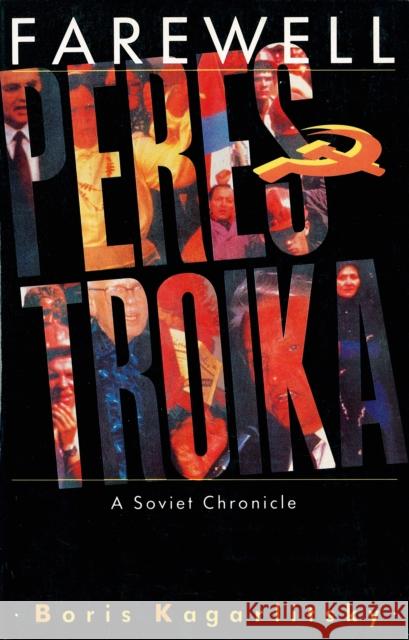Farewell Perestroika: A Soviet Chronicle » książka
Farewell Perestroika: A Soviet Chronicle
ISBN-13: 9780860915089 / Angielski
In this dramatic, month-by-month chronicle of a tumultuous period, Boris Kagarlitsky bears witness to the eruption of open political discussion in the Soviet Union during the 'hot summer' of 1988. As a leading member of the Moscow Popular Front, Kagarlitsky and his associates sought to extend the debate and agitation throughout society as a whole. From the striking coalfields if Siberia and the human chain protests of the Baltic republics to the rallies of the fascist Pamyat and the burgeoning of a Soviet environmental movement, Kagarlitsky listens to and analyses a nation in turmoil. Describing the elections of Spring 1989, Kagarlitsky assesses candidates like Boris Yeltsin, to whom the Popular Front lent critical support. He outlines the way in which the ensuing People's Congress fed a mounting frustration at the gap between promised and actual change. And he points to the dangers of an emerging 'market Stalinism' which could exacerbate social inequity without delivering political freedom. Autumn 1989 saw governments throughout Eastern Europe tumble before mass mobilizations of peoples no longer afraid of Soviet intervention. The biggest transformation in global politics since 1945 flowed directly from the opening of discussion between the caucuses of the Soviet Communist Party and the masses it claimed to represent, a debate which is described in these pages with a vividness and insight available only to a participant. Kagarlitsky's testament concludes with a stark account of the escalating difficulties and conflicts facing the government in the early months of 1990 - events signalling, in the author's view, the demise of perestroika itself.











